CONTENTS

First published 2005 by Wrightbooks an imprint of John Wiley & Sons Australia, Ltd 42 McDougall Street, Milton, Qld 4064 Office also in Melbourne Bill Handley 2005 The moral rights of the author have been asserted. National Library of Australia Cataloguing-in-Publication data: Handley, Bill. Speed maths for kids: Helping children achieve their full potential. Includes index. For primary school students. 1. 1.
Mental arithmetic. 2. Mental arithmetic Study and teaching (Primary). I. Title. 513.9 All rights reserved.
No part of this publication may be reproduced, stored in a retrieval system, or transmitted in any form or by any means, electronic, mechanical, photocopying, recording, or otherwise, without the prior permission of the publisher. Cover design by Rob Cowpe PREFACE I could have called this book Fun With Speed Mathematics. It contains some of the same material as my other books and teaching materials. It also includes additional methods and applications based on the strategies taught in Speed Mathematics that, I hope, give more insight into the mathematical principles and encourage creative thought. I have written this book for younger people, but I suspect that people of any age will enjoy it. I have included sections throughout the book for parents and teachers.
A common response I hear from people who have read my books or attended a class of mine is, Why wasnt I taught this at school? People feel that, with these methods, mathematics would have been so much easier, and they could have achieved better results than they did, or they feel they would have enjoyed mathematics a lot more. I would like to think this book will help on both counts. I have definitely not intended Speed Maths for Kids to be a serious textbook but rather a book to be played with and enjoyed. I have written this book in the same way that I speak to young students. Some of the language and terms I have used are definitely non-mathematical. I have tried to write the book primarily so readers will understand.
A lot of my teaching in the classroom has just been explaining out loud what goes on in my head when I am working with numbers or solving a problem. I have been gratified to learn that many schools around the world are using my methods. I receive emails every day from students and teachers who are becoming excited about mathematics. I have produced a handbook for teachers with instructions for teaching these methods in the classroom and with handout sheets for photocopying. Please email me or visit my website for details. Bill Handley, Melbourne, 2005 bhandley@speedmathematics.com www.speedmathematics.com INTRODUCTION I have heard many people say they hate mathematics.
I dont believe them. They think they hate mathematics. Its not really maths they hate; they hate failure. If you continually fail at mathematics, you will hate it. No-one likes to fail. But if you succeed and perform like a genius you will love mathematics.
Often, when I visit a school, students will ask their teacher, can we do maths for the rest of the day? The teacher cant believe it. These are kids who have always said they hate maths. If you are good at maths, people think you are smart. People will treat you like you are a genius. Your teachers and your friends will treat you differently. You will even think differently about yourself.
And there is good reason for it if you are doing things that only smart people can do, what does that make you? Smart! I have had parents and teachers tell me something very interesting. Some parents have told me their child just wont try when it comes to mathematics. Sometimes they tell me their child is lazy. Then the child has attended one of my classes or read my books. The child not only does much better in maths, but also works much harder. Why is this? It is simply because the child sees results for his or her efforts.
Often parents and teachers will tell the child, Just try. You are not trying. Or they tell the child to try harder. This just causes frustration. The child would like to try harder but doesnt know how. Usually children just dont know where to start.
Sometimes they will screw up their face and hit the side of their head with their fist to show they are trying, but that is all they are doing. The only thing they accomplish is a headache. Both child and parent become frustrated and angry. I am going to teach you, with this book, not only what to do but how to do it. You can be a mathematical genius. You have the ability to perform lightning calculations in your head that will astonish your friends, your family and your teachers.
This book is going to teach you how to perform like a genius to do things your teacher, or even your principal, cant do. How would you like to be able to multiply big numbers or do long division in your head? While the other kids are writing the problems down in their books, you are already calling out the answer. The kids (and adults) who are geniuses at mathematics dont have better brains than you they have better methods. This book is going to teach you those methods. I havent written this book like a schoolbook or textbook. This is a book to play with.
You are going to learn easy ways of doing calculations, and then we are going to play and experiment with them. We will even show off to friends and family. When I was in year nine I had a mathematics teacher who inspired me. He would tell us stories of Sherlock Holmes or of thriller movies to illustrate his points. He would often say, I am not supposed to be teaching you this, or, You are not supposed to learn this for another year or two. Often I couldnt wait to get home from school to try more examples for myself.
He didnt teach mathematics like the other teachers. He told stories and taught us shortcuts that would help us beat the other classes. He made maths exciting. He inspired my love of mathematics. When I visit a school I sometimes ask students, Who do you think is the smartest kid in this school? I tell them I dont want to know the persons name. I just want them to think about who the person is.
Then I ask, Who thinks that the person you are thinking of has been told they are stupid? No-one seems to think so. Everyone has been told at one time that they are stupid but that doesnt make it true. We all do stupid things. Even Einstein did stupid things, but he wasnt a stupid person. But people make the mistake of thinking that this means they are not smart. This is not true; highly intelligent people do stupid things and make stupid mistakes.
I am going to prove to you as you read this book that you are very intelligent. I am going to show you how to become a mathematical genius. How To Read This Book Read each chapter and then play and experiment with what you learn before going to the next chapter. Do the exercises dont leave them for later. The problems are not difficult. It is only by solving the exercises that you will see how easy the methods really are.
Try to solve each problem in your head. You can write down the answer in a notebook. Find yourself a notebook to write your answers and to use as a reference. This will save you writing in the book itself. That way you can repeat the exercises several times if necessary. I would also use the notebook to try your own problems.
Remember, the emphasis in this book is on playing with mathematics. Enjoy it. Show off what you learn. Use the methods as often as you can. Use the methods for checking answers every time you make a calculation. Make the methods part of the way you think and part of your life.



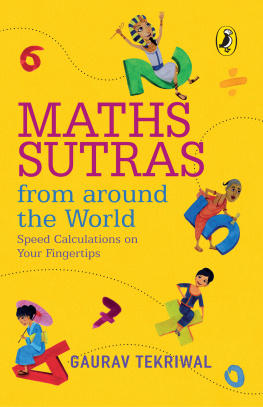
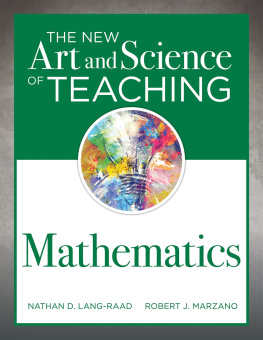
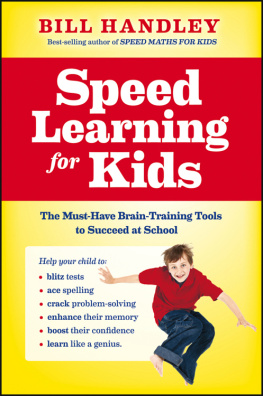
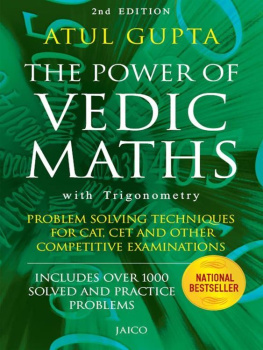
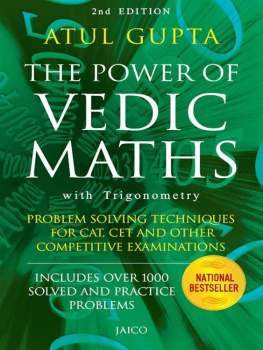
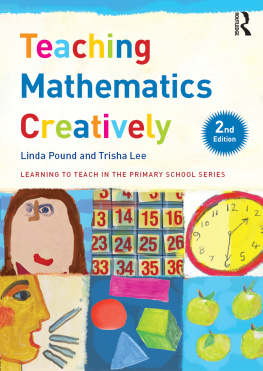
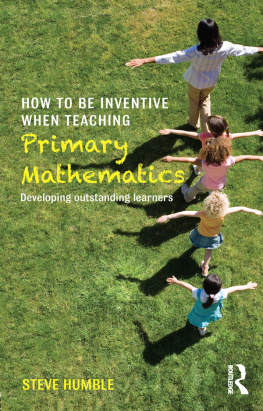
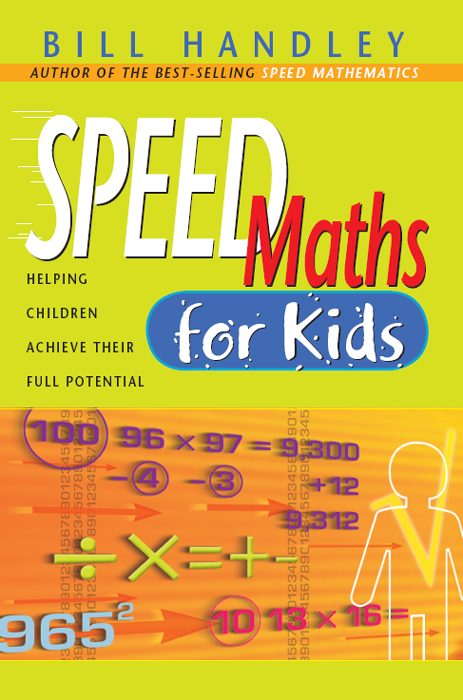
 First published 2005 by Wrightbooks an imprint of John Wiley & Sons Australia, Ltd 42 McDougall Street, Milton, Qld 4064 Office also in Melbourne Bill Handley 2005 The moral rights of the author have been asserted. National Library of Australia Cataloguing-in-Publication data: Handley, Bill. Speed maths for kids: Helping children achieve their full potential. Includes index. For primary school students. 1. 1.
First published 2005 by Wrightbooks an imprint of John Wiley & Sons Australia, Ltd 42 McDougall Street, Milton, Qld 4064 Office also in Melbourne Bill Handley 2005 The moral rights of the author have been asserted. National Library of Australia Cataloguing-in-Publication data: Handley, Bill. Speed maths for kids: Helping children achieve their full potential. Includes index. For primary school students. 1. 1.